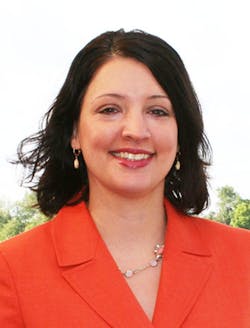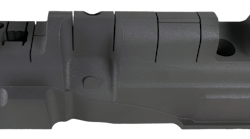A very intriguing trend is occurring among plastics machinery and equipment suppliers. We started hearing about it during NPE and then it became more obvious as the year progressed and we talked to other suppliers. With an eye on getting innovations out the door quickly, the trend is to localize production. This means manufacturing the product wherever the customer is in the world rather than shipping from one centralized location. Suppliers are jumping in with both feet, putting production facilities in place with employees who know the language, the culture and the industry. This is a sophisticated supply chain strategy where "one size fits all" no longer will work.
It really was just a matter of time. Requirements for machinery in Germany, for example, are completely different than requirements for machinery in India. The barriers of language and culture can make a business venture even more onerous. It also is critical to prove to the local industry that a company is dedicated. Who wants parts service handled by a center eight time zones away with a technician who doesn't understand the language?
But there also is another positive that is coming from all this activity. Makers of plastics machinery and equipment are finding avenues to adapt technologies in ways that hadn't been considered previously, and the latent effect will be technology transfers and innovations that may never have happened otherwise. So, water conservation technologies that are being used in the Eastern hemisphere, for example, may eventually end up addressing similar issues in the Western hemisphere.
To be clear, this is a global phenomenon. This column happens to focus on companies using the Asia-Pacific region for their supply chain strategy. Other countries that have been mentioned include Australia, India, Germany and of course, the United States.
Representatives of several companies were eager to offer their perspectives. They included John Keane, Nordson's senior VP. He stated it very simply, "Most of our competition is local; the easiest transition was sales and service," in terms of the localizing approach. In Nordson's case, it was harmonizing many acquisitions into one global presence and then executing a plan for how the businesses were going to be effective in local markets.
There was a die refurbishing plant in Shanghai that was acquired as part of Extrusion Dies Industries (EDI). That was to service the local die industry. Nordson moved the die refurbishing services into another facility and made a capital investment, and now the company can make dies for the local market. That was the first step, Keane says. Now, in the same plant, Nordson is assembling pumps from Xaloy for the local market with a plan to move into screen changers.
"So the idea was, in the China market, to create a hub of product for the local market as well as parts, technical knowledge, everything else." He hopes that 80 percent of what the customer is looking for "we can answer locally within the same time zone, same language, same culture."
Hot-runner company Mastip Technology Ltd., based in New Zealand, now has regional offices in North America and Europe. Within the last year, it also established Mastip Hot Runner Technology Co. in Shanghai, a full-service and technical support company dedicated to Northern and Eastern China. Mastip's goal was to have a full-service company based in Shanghai that would be able to provide high-level and direct support to the mold-making regions of Eastern China.
Italy-based Frigel, the maker of process-cooling systems, is taking the same approach. Benjamin Sutch, president of sales for the Asia Pacific Region at Frigel Asia Pacific Co., spoke about it in detail.
"As Frigel brings its array of process-control and cooling products to each corner of the globe, we are exposed to the unique operational requirements and conditions our products will face," he says. "Over the past four-plus years as Frigel has continued to set up global operations to meet diverse markets around the world, we have learned much about how to adapt our technologies to serve the needs of our local and global customers."
Region to region, what is true in choosing a Frigel product in Paris is very different than in Bangkok, Shanghai or Chicago. The local climate, competition, industry knowledge, and availability and cost of resources all play a role in shaping the continuing development of Frigel solutions.
But beyond product development opportunities, "localizing" your business brings you closer to the customers you are serving and in turn shows them that you are building for the long term of the region, Sutch points out.
"This provides confidence to our customers that Frigel is calling 'their' region 'home,' " he says.
Is your company taking a similar approach? E-mail me at aderosa@plasticsmachinerymaga zine.com. We would especially like to know about product innovations that have come about as a result of these strategies.
Angie DeRosa, managing editor







